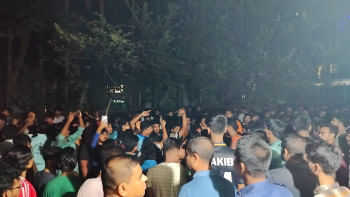Friends with benefits or ideological foes?
Iran has for years faced accusations of cooperation with al-Qaeda despite stark ideological differences, but while mutual interests may have sometimes converged any relationship has been marked by distrust, analysts say.
US Secretary of State Mike Pompeo's claim -- made just a week before President Donald Trump leaves office -- that Iran was the "new Afghanistan" for Qaeda militants surprised observers, who said there was no evidence of the country being used as a base.
He also stated publicly for the first time that al-Qaeda's number two, known as Abu Muhammad al-Masri, was assassinated in Tehran in August.
On paper, Iran and al-Qaeda are ideological foes -- the former the Persian regional heavyweight guided by Shia Islam, the latter inspired by a militant vision of Sunni Islam and dominated by Arabs.
Tehran has long dismissed claims of links to al-Qaeda, and Iranian Foreign Minister Javad Zarif accused Pompeo of "ending his disastrous career with more warmongering lies."
Zarif noted that all the militants who carried out al-Qaeda's 9/11 attacks on the United states came from Pompeo's "favourite ME destinations," a pointed reference to Iran's regional rival Saudi Arabia.
Daniel L Byman, a professor at Georgetown University, described the relationship between Iran and al-Qaeda as "troubled and mutually suspicious."
"In general, there is cooperation, and Iran does provide some sanctuary," he said, adding that "Iran has put limits on al-Qaeda even as it has provided a haven".
After 9/11 many al-Qaeda cadres from Afghanistan did seek refuge in Iran but it was never an easy relationship, he said, leading up to a wave of arrests in 2002 and 2003.
The New York Times reported that Pompeo succeeded in "bewildering counterterrorism officials" with his comments, with some saying his assertions "appeared to represent his own analytic conclusions" rather than those of US intelligence.
Pompeo's comments came amid speculation that the Trump administration, in its final days, might go as far as ordering a strike against Iran -- even as incoming president Joe Biden mulls rejoining the 2015 deal on its nuclear programme.
The killing of Abdullah in Tehran, reportedly carried out by Israel's Mossad agents at the behest of the United States has also thrown new light on the alleged presence of Qaeda members in Iran.
Assaf Moghadam, associate professor at the Interdisciplinary Center Herzliya (IDC) in Israel, described the relationship as "tactical cooperation." Especially with the US administration changing, he said, Iran will not want to give up an "al-Qaeda card" that has proved "way too valuable" for Iranian leaders in the past.
Iran has worked with al-Qaeda and sheltered them on many occasions. But beyond these episodes of cooperation, the relationship has remained one of hostility and distrust.
Depending on the political climate, Iran "would be happy to sell out Al-Qaeda, but only for the right price," Byman said.

 For all latest news, follow The Daily Star's Google News channel.
For all latest news, follow The Daily Star's Google News channel. 



Comments